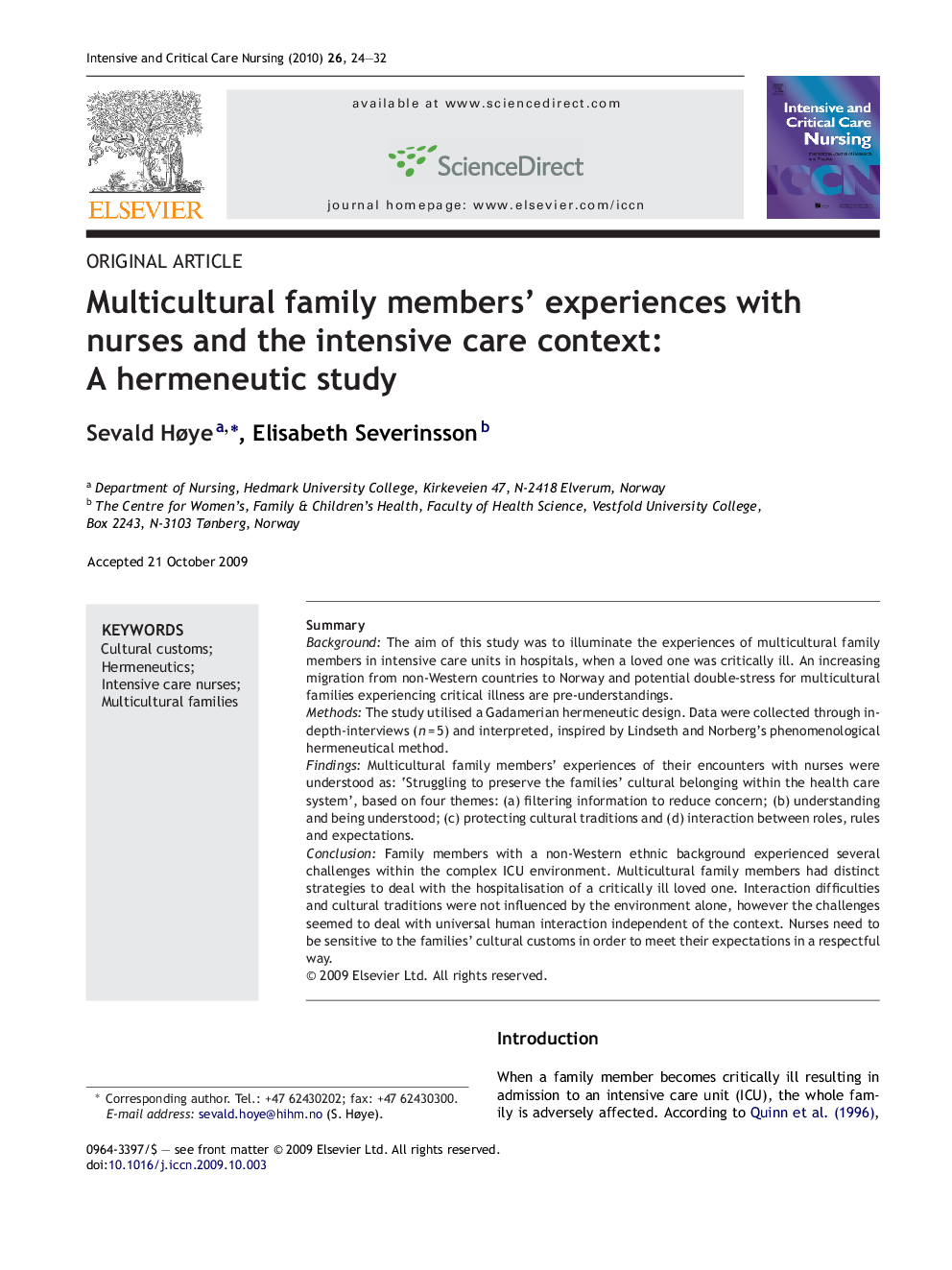| Article ID | Journal | Published Year | Pages | File Type |
|---|---|---|---|---|
| 2653348 | Intensive and Critical Care Nursing | 2010 | 9 Pages |
SummaryBackgroundThe aim of this study was to illuminate the experiences of multicultural family members in intensive care units in hospitals, when a loved one was critically ill. An increasing migration from non-Western countries to Norway and potential double-stress for multicultural families experiencing critical illness are pre-understandings.MethodsThe study utilised a Gadamerian hermeneutic design. Data were collected through in-depth-interviews (n = 5) and interpreted, inspired by Lindseth and Norberg's phenomenological hermeneutical method.FindingsMulticultural family members’ experiences of their encounters with nurses were understood as: ‘Struggling to preserve the families’ cultural belonging within the health care system’, based on four themes: (a) filtering information to reduce concern; (b) understanding and being understood; (c) protecting cultural traditions and (d) interaction between roles, rules and expectations.ConclusionFamily members with a non-Western ethnic background experienced several challenges within the complex ICU environment. Multicultural family members had distinct strategies to deal with the hospitalisation of a critically ill loved one. Interaction difficulties and cultural traditions were not influenced by the environment alone, however the challenges seemed to deal with universal human interaction independent of the context. Nurses need to be sensitive to the families’ cultural customs in order to meet their expectations in a respectful way.
